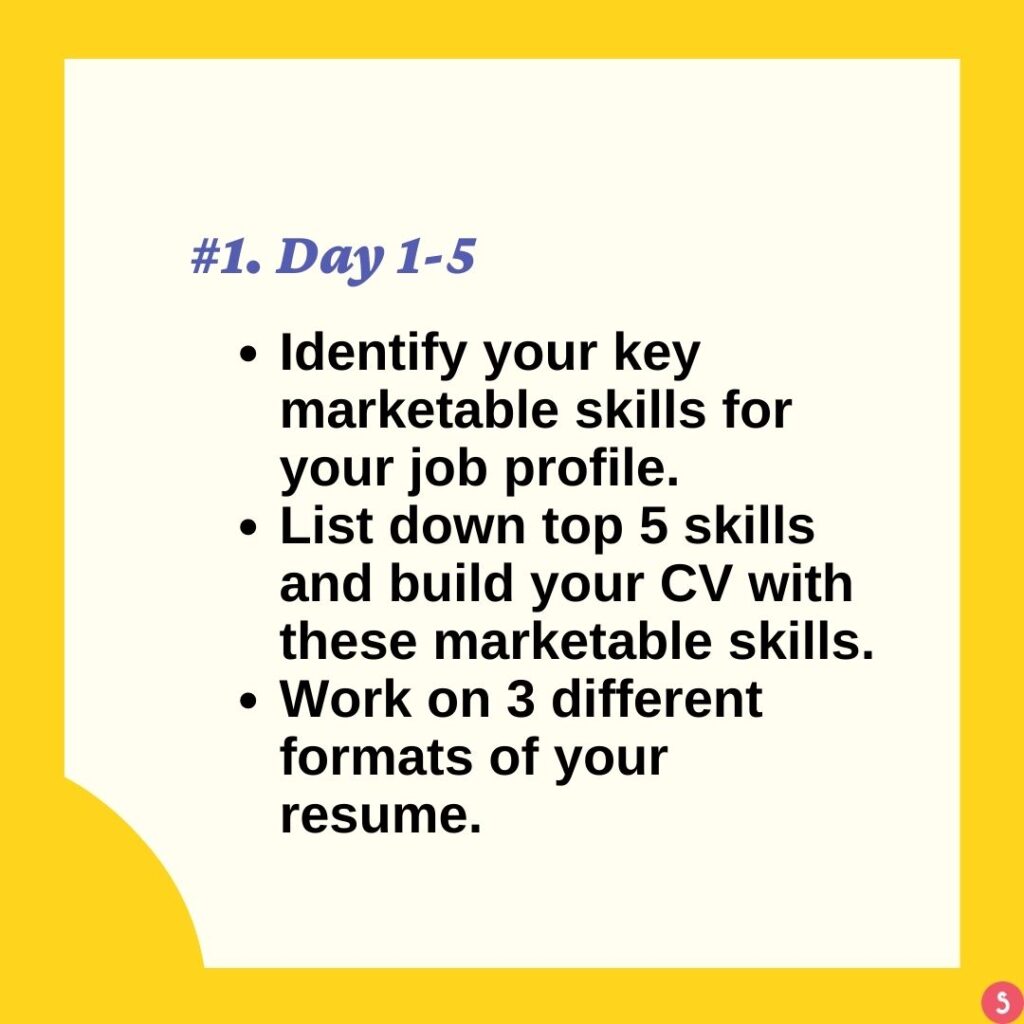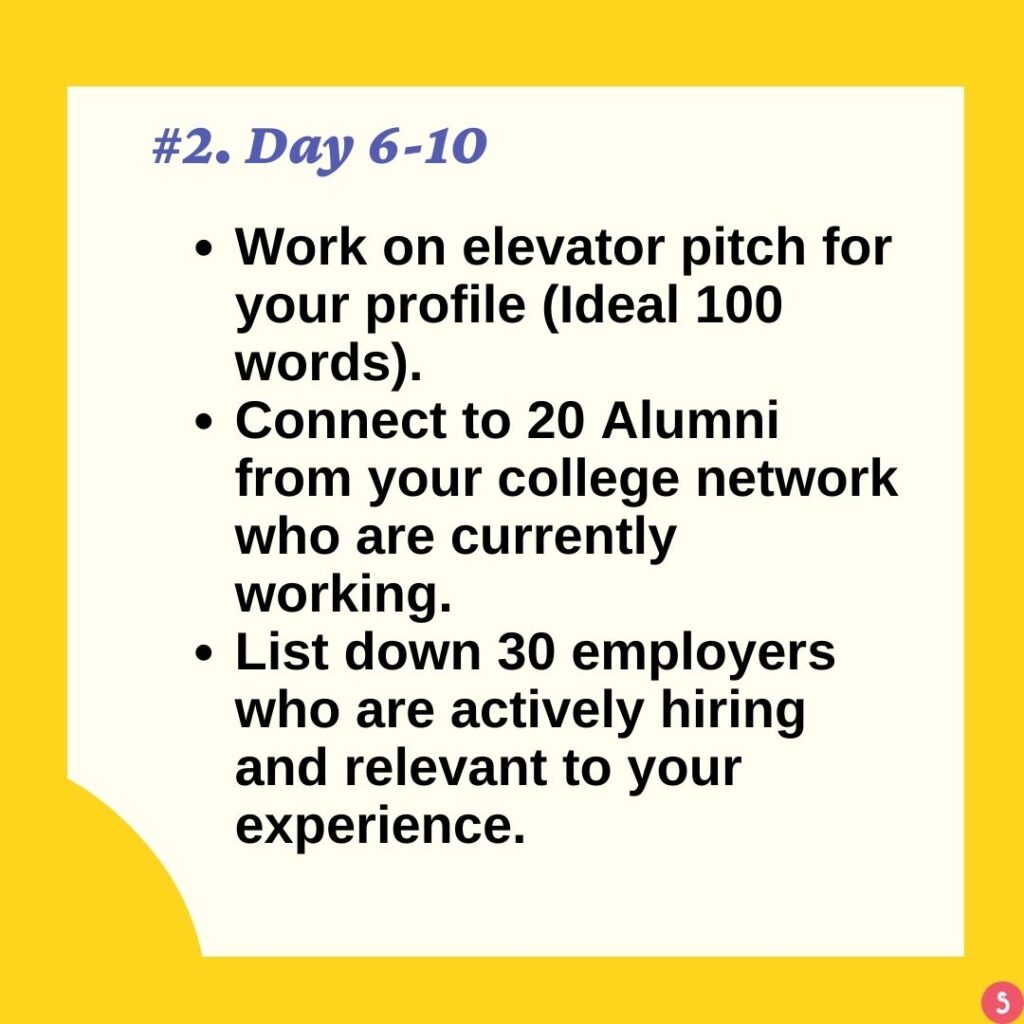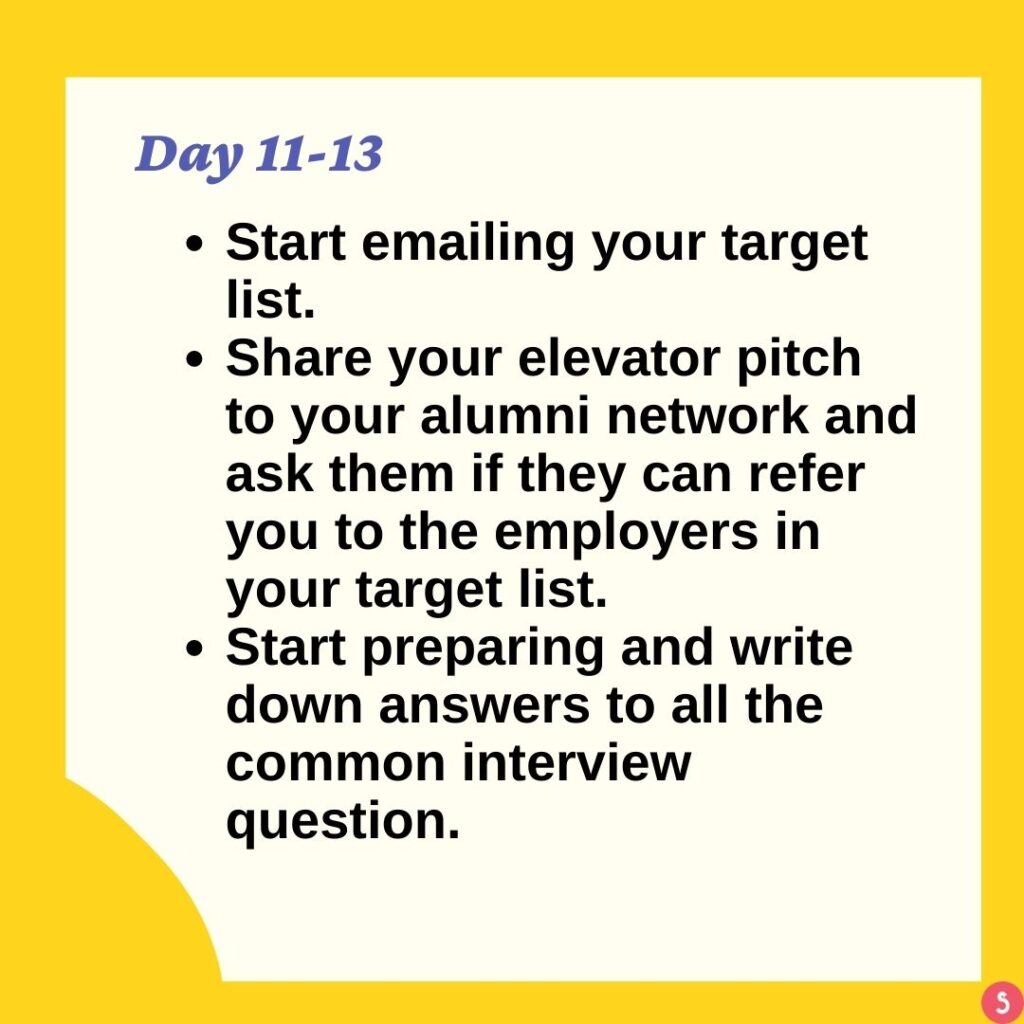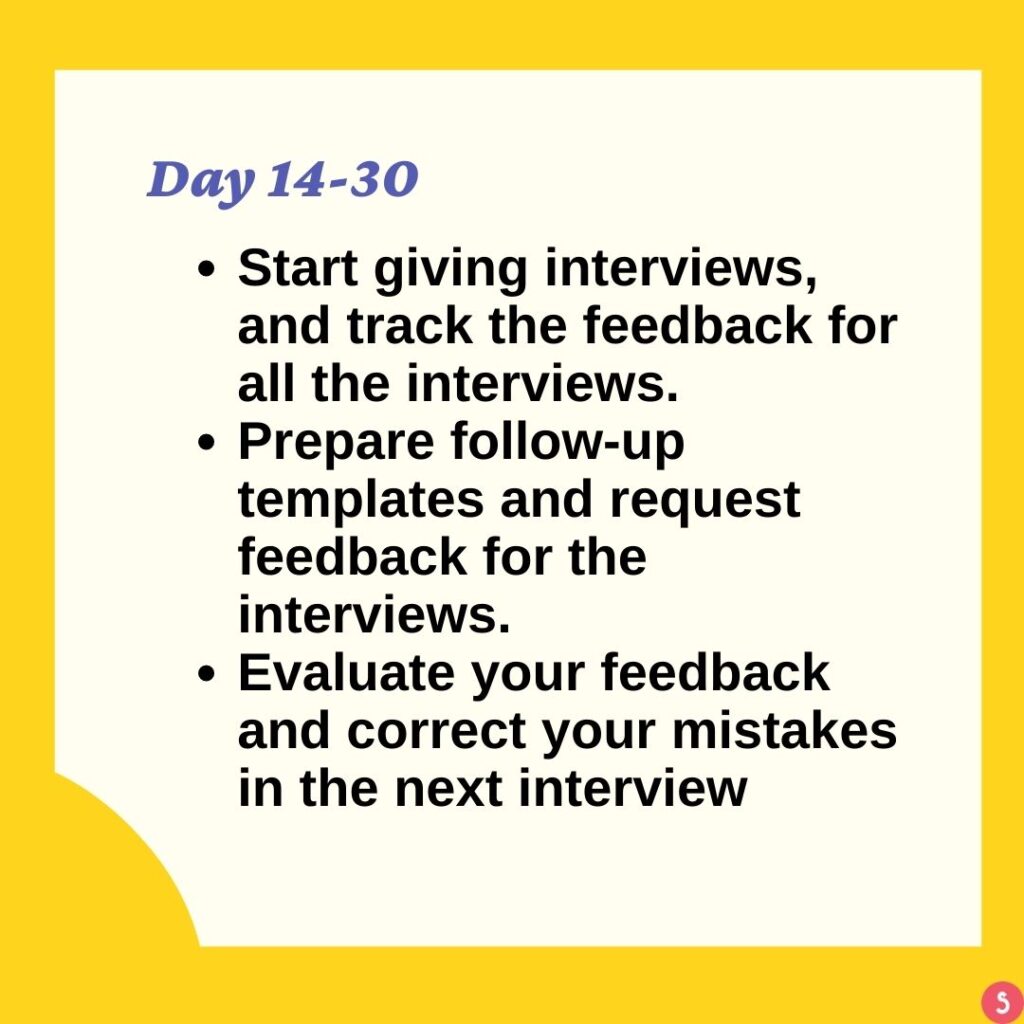If you’re looking for a new job or just getting started with your first job hunt process, here is a quick and useful guide for you.
Even in a good job market, it’s not easy to get a job quickly! But this shouldn’t stop you from sending applications to prospective companies. Always remember, job search/ job hunt needs proper planning and execution. The key to success in your job search process is having a search strategy. Here is a simple 4-step process and a breakdown schedule that can help you land a new job in just 30 days.
First 5 days – Focus on the self-evaluation, and formats you want to use while drafting your CV.

Day 6-10: Create an elevator pitch. Analyze your network and expand your network. Do a market analysis to identify a minimum of 30 employers who are hiring relevant to your experience.

Day 11-13: This week the focus should be on the action – Connect with target employers, alumni network, and recruiters. Start interview preparation and practice thoroughly.

Day 14-30: The final countdown – attend as many interviews as possible, collect the feedback and focus on development plans.

Finally, stay consistent and positive in your job search. If you’re starting your first job and not sure of how to navigate corporate life, here is a survival guide.
If you’re going through the patch and looking for a customized plan in your job search process, connect with our experts.

